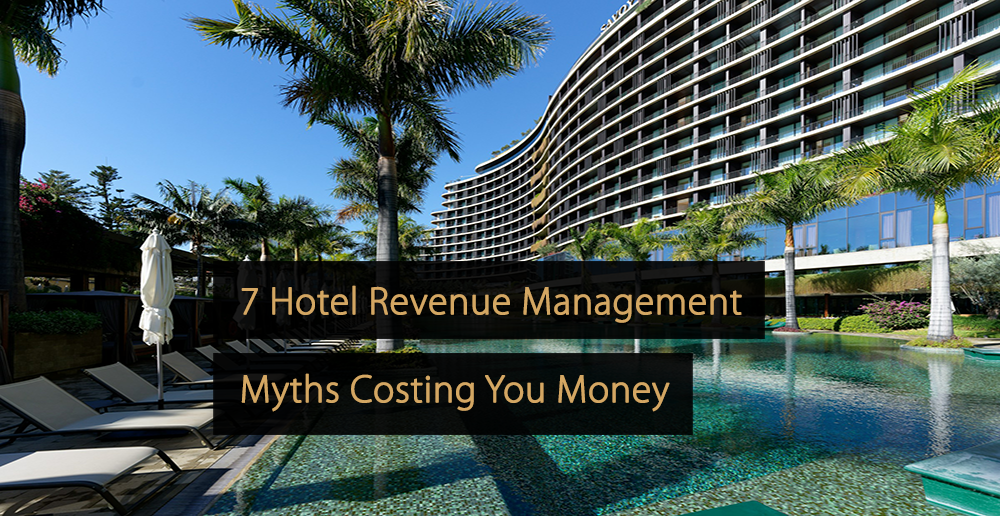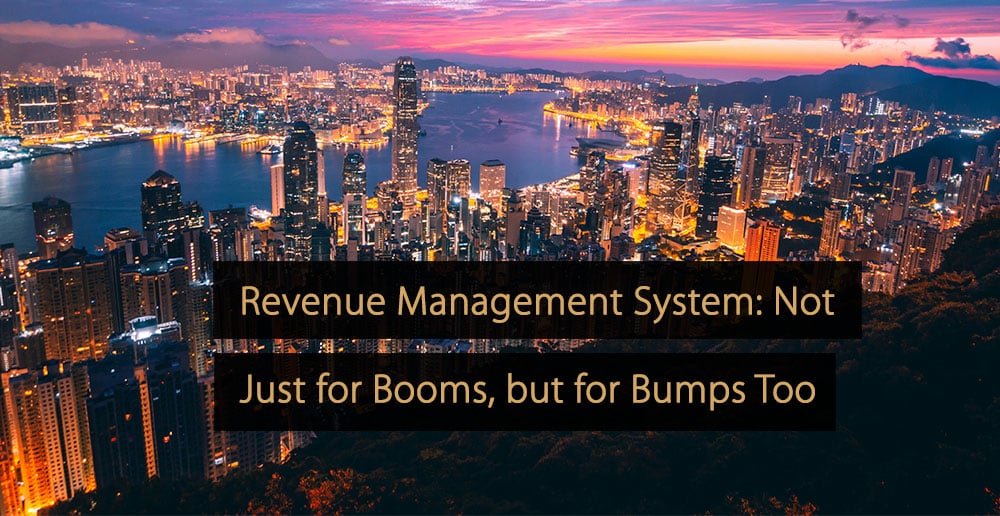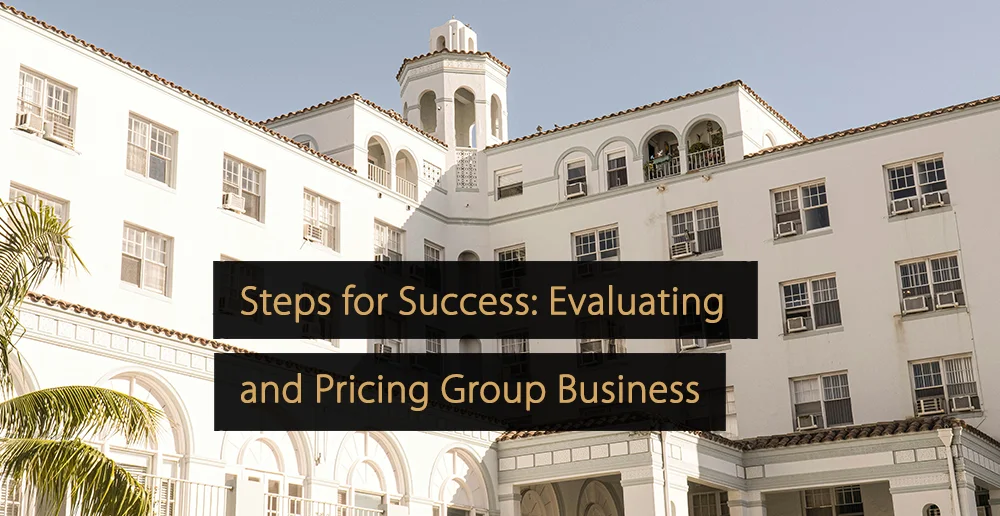Question for Our Revenue Management Expert Panel:
Automation in revenue management can mean significant time-saving. Where can automation bring the most value to a hotel revenue management team and what tasks are best suited to automation?
Industry Expert Panel
Our Industry Expert Panel exists out of professionals within the hospitality & travel Industry. They have comprehensive and detailed knowledge, experience in practice or management and are forward-thinking. They are answering questions about the state of the industry. They share their insights on topics like revenue management, marketing, operations, technology and discuss the latest trends.
Our Revenue Management Expert Panel
- Dr. Betsy Stringam-Bender – Professor of Hotels & Resorts, New Mexico State University
- Patrick Wimble – Managing Director, Lightbulb Consulting
- Theresa Prins – Founder, Revenue Resolutions
- Chaya Kowal – Director of Revenue Management, Potato Head Family
- Paulo Aragao – Revenue Management Professional
- Sandra Gannon – Commercial Consultant, Revenue Puzzle
- Nikhil Roy – Revenue & Pricing Manager, Key Hospitality B.V.
- Daniel Feitosa – Revenue Management Specialist
- Daphne Beers – Owner, Your-Q Hospitality Academy
- Tanya Hadwick – Group Revenue & Yield Leader, SunSwept Resorts
- Pablo Torres – Hotel Consultant, TSA Solutions
- Edyta Walczak – Cluster Revenue Manager, Arora Hotels
- Mariska van Heemskerk – Owner, Revenue Management Works
- Heiko Rieder – Revenue Management Professional
- Jutta Moore – Director, Moore Hotel Consulting
- Silvia Cantarella – Revenue Management Consultant, Revenue Acrobats
- Massimiliano Terzulli – Revenue Managent Consultant, Franco Grasso Revenue Team
- Andrew Wheal – Founder and Chief Techspert, Hospitality Tech Expert
- Naveed Mirza – Corporate Director of Revenue Management, Helix Hospitality
- Ask Our Panel a Question
- Join Our Expert Panel
“Automation is an interesting word, and one that can mean many things to revenue management. There are many tasks, equations and algorithms that go into good revenue decisions. These numerical calculations can be automated so that managers have good data with which to make better informed decisions. Automation can also retrieve data that would not be humanly possible in the confines of days, weeks, etc., bringing more knowledge about markets, demand, and performance to the revenue decisions.
Most RMs are familiar with data analysis of historical performance, and combining that with current bookings to predict demand. Automation is a part of those calculations. But automation with larger fields of data (I hesitate to use the words “big data”, because really where does big data begin and end?), allows RMs to see beyond those traditional fields of data. Some revenue management systems use automation to collect and analyze internet search demand for airlines and additional hotels in a destination, bringing another level of demand data to the decision process.
The big problem with automation is when we ask it to take the place of management. We still need people to set and refine strategy, work with hotel management teams, and to consider outside information that may not be a part of calculations. Watching baseball with the new automated strike zones is an entertaining look at when we allow automation to make decisions beyond its full capacity. The future is not here yet, and for now, human interpretation is still needed, more often than we hope.
AI and machine learning can help us to better analyze data, and to make better predictions, if the data that is used represents future demand. Remember the old “Garbage In Garbage Out”? This still holds true today, even with automation, AI and machine learning. And even with the best tools, many an RM has spent an occasional day deciphering why history did not repeat itself in predicting hotel demand. But automation should make those days fewer and farther between.
Automation brings collection, computation, and analysis of a phenomenal range of data, and allows for quick calculations; all of which lead to better revenue decisions. And thankfully they quickly compute large algorithms so we don’t have to anymore!”
“I think the possibilities for automation are endless. In revenue management, we now have the capability to automate just about any process that is a real time sucker, i.e., jobs that don’t need our strategic thinking, but that we often get sucked into. Two of the biggest opportunities are:
- Pricing: I know… this is contentious. You might argue that with all the uncertainty around demand now, you couldn’t trust your RMS to make the correct decisions. My question would be: why would you assume the price you set is always the right one? Even in uncertain times like now, your RMS is looking at multiple variables, multiple times a day adjusting all the time – far more than any human could. It is also taking the emotion out of the decision, which, for the most part, results in better outcomes. If your system is giving you the incorrect prices, find out why and correct it (i.e. unknown special events, changes in feeder market travel restrictions etc). Set your ceiling and floor rates and then manage prices by exception.
- Data compilation and visualisation: How much time do we spend weekly compiling data into a digestible format for RM meetings only for no one to look at it until they are actually in the meeting?! Look at how you could schedule automatic reports from your PMS/RMS/Rate shopping/Google Analytics etc., and learn how to pull this into a BI tool like Tableau, PowerBI etc. If you don’t know how to do this or don’t have the time, find someone who can help.
The golden rule for automation: Ask yourself – can I automate this? If yes, does it give me something measurable and impactful, i.e., more insight, more time, fewer errors etc.? If the answer is yes to both questions – automate it and forget it!”
“Automation is key to optimising revenue. Some of the tasks and activities where revenue management benefits most are:
- Channel Manager – the distribution of rates can be extremely time consuming and having a system that automatically updates rates on various platforms simultaneously is a non-negotiable system.
- Pricing system – A fully automated pricing solution is another huge benefit for revenue optimisation. This way pricing is adjusted as demand fluctuates and you can focus on strategic thinking.
- Rate Shopping and Rate Parity checks can be very mundane and time-consuming but are needed daily. A rate shopping tool in place to pull the data together for you is a huge win on time and optimisation.
- Reputational Management – Being able to bring all reviews into one space and then use that data to make informed revenue decisions is key. If this is not in place you will have to use multiple platforms and then collate the data, which is not very practical at the best of times.
- My new favourite is a direct booking engine solution that includes a quoting tool. This tool is then used by the reservations team to send quotes out to clients using the various price points available on the booking engine, and once the guest is ready to book, the process is automated and online. Another big win for time and optimisation.”
“It is not humanly possible for a Revenue Team to be able to keep track of all the changes happening and manually make changes, therefore they often lose optimization opportunities. Automated systems also keep track of forward-looking data and trends and can provide really useful insights. Automation allows Revenue Managers to save time in yielding and inventory control (plus others) allowing them to allocate more time to focus on analyzing data, recommendations and communicating with other teams to build the correct strategies. Automation also allows them to have more time to build relationships with other departments (useful for Total Revenue Management) and connect with Revenue Managers from the competition.”
“When it comes to compiling, generating or displaying reports, any kind of automation is welcomed. It’s been surveyed many times and the outcomes seem to be the same across the board: revenue managers spend a long time on reports. The causes could be many, but most of the time it is due to a lack of integrations between systems. Still, there are PMSs in the market that do not connect with the CRS, channel manager, RMS, etc.
Revenue managers have no option but to work relentlessly on translating one information to another, cross-checking spreadsheets, building charts, etc. The plethora of systems is overwhelming sometimes, and now is the time to make open API a must, across all systems, all software. Only then we will be able to integrate and automate.”
“Having multiple excel sheets to track data, the expected 24 hour turn-around for a booking request or the forwarding of a phone call to voicemail is unacceptable in the current times. In the age of instant response, information is expected at your fingertips. An RMS system is a must for a revenue team but it has to be one that looks at forward tends and doesn’t weigh on history.
CRM systems are crucial for proactive guest communication and well-trained AI chatbots can relieve pressure on pre-stay communication. Those are only some examples, but one size doesn’t fit all, so the approach needs to be tailor-made for each individual hotel/group.”
“Automation is indeed a time saver and a huge help for the revenue management community. I expect it to grow even further and instead of replacing a Revenue Manager, it can assist them to make the correct decisions. As we have seen during the pandemic, an AI RM tool wasn’t the most reliable and RMs had to get a grip of the market situation and carve out potential revenue opportunities.
However, I believe tasks such as daily and hourly rate updates, inventory optimization, weekly/monthly market updates and appropriate suggestions are best suited for such a tool as it helps the RM save a lot of time and energy.”
“The amount of paperwork in all departments definitely needs to be reduced. It’s clear: when the Guest Relations, Front Desk and Reservations Departments are doing paperwork, checking reservations, guests details, etc., they are losing time that could be used to help and understand guests insights or to solve clients’ needs. More attention to guests is related to more revenue with better sales opportunities (upselling, F&B products, packages, etc).
Frictionless services, such as mobile keys, also save time and generate opportunities to create more products where the focus is on the guests, enabling them to get more value from their stays.”
“The one thing that comes to mind is the endless creation of excel sheets, reservation data extracts, pivot tables and other financial reporting. In my time as a revenue manager for a major chain hotel, we spent about 70% of our time on:
- Historical data: creating, analyzing, explaining, defending and copying
- Future data: creating, predicting, mirroring, budgeting, forecasting, explaining, defending, adapting and analyzing
- Operational tasks: dutyshifts (really?!), management meetings, all employee meetings, presentations and cross-training sessions
All of this needed to be done despite the biggest responsibility of a revenue manager being to GENERATE revenue in the present moment. So automation can be best used to minimize the time spent on the above areas where a revenue manager has zero impact on the outcomes anymore. This way they are empowered to spent time on the job they are actually hired to do, i.e., to generate revenue.”
“Having worked in both manual and automated environments, I do believe that instant data analysis without having to utilize spreadsheets is key. Automated data collection for both on-the-books and historical data, insights into forward trends/pace and market evolution will enable the team to focus more on strategy and analysis Vs. creating the reports. Pricing decisions are also key to the success of any team and the ability to look at live competitor data, demand and trends is somewhere that automation can add exponential value, plus it eliminates the risk of human error.
Allow the limited (human) resources to focus on interrogating the data rather than producing. Let’s also not disregard the potential security risk of completing everything in excel. In reality, automation is about giving the commercial team the time to look at strategies and manage the complexities of the distribution landscape.”
“The 3 top areas where technology has really helped to save time I would say are:
- Rate upload: It’s not that long ago since revenue managers had to manually upload rates into every channel. Also, something that sounds so odd for the younger generations, might still be the daily routine in smaller properties and family-owned businesses that have not introduced any tech (channel manager in this case). Depending on how intensive the rate upload strategy is, it could take up to 1/3 of the working time to perform this task.
- Rate scraping: Gone are the days when one had to call the comp set every morning to check on their selling rate and occupancy. Having software to check rates of the comp set daily (or several times a day) means the Revenue Manager can focus his/her time on other, more productive, tasks.
Nowadays, RMS such Ideas, Duetto or even Atomize for smaller properties, help hotels to run on autopilot and apply the rates that the system considers ideal. - Report creation: Another very time-consuming task that has been taking up to 30% of the Revenue Manager’s time. i.e., being able to compile data and create reports for analysis and action. All these steps are now owned by technology, with the Revenue Manager “only” getting involved at the strategy stage.”
“Because of the pandemic, Revenue Management systems are no longer as useful as they used to be, as hotels are facing unparalleled market conditions and the historical data has now become obsolete. It’s especially important to use a good, comprehensive analytical tool, where Revenue Managers can access all types of data, from Google Analytics through to travel restriction information, international flight searches, local demand and events.
Business intelligence can be gathered manually, but that type of analysis can be tedious and time-consuming. Access to live data will allow for more accurate decision-making processes.”
“Automation, by implementing an RMS for example, can help save time by not having to pull daily reports and calculate pick up and expectations. You can often set alerts to point you to movements that are very strong or very poor. By doing this you can start your job right away and strategize your next steps instead of spending hours searching for periods (good or bad) that need attention. In the end you still need the Revenue Manager to interpret the numbers and help align the strategy with other teams based on data.
Often hotels without systems get lost in those daily tasks and lack the time needed to take their data to the next level. This is specifically related to the implementation of an RMS, but how about systems to send out group quotations? Instead of spending a lot of time making offers, we can spend more time on the sales process and improving conversion. It is important to see within your hotel what processes are there and what can be automated and then find the right balance between automation and the human touch.”
“The debate about automation in Revenue Management should be about effectiveness as opposed to efficiency. It is about the amount of missed opportunities from increased rates or adjustments of business mix caused by missing automation.
In order to benefit from all opportunities, pre-covid demand required immediate reaction to almost every change in own occupancy or competitors pricing and furthermore push ARI updates to all distribution channels in live speed, for 2 years or longer in advance. To achieve this without automation is impossible and the losses in market shares can be high when demand changes are reflected too late in the own pricing strategy.
Additionally, reliable automated demand forecasts can make the life of a revenue manager much easier when producing the financial revenue forecast. Simply put, the more accurate the automated demand forecast of the RMS, the fewer manual calculations the revenue manager needs to make. If required, manual forecasting should be processed in the tool the revenue manager uses to monitor the business from where it can easily be exported to the financial system. Usually it is the RMS that holds historical and future data in a visually easy to comprehend form.
When there is an approval process to be followed within the forecasting cycle, all stakeholders should review the data on one shared dashboard or report.”
“The most value to be had in the automation of revenue management is in the implementation of pricing & data analytics within a revenue management system. Revenue management systems take in so many more data points to arrive at an optimal price that would be impossible to compute manually.
In addition, the ability to have a data analytics report at the click of a button saves hours and hours of complex report creation. Having these reports automated and data readily available frees up valuable resources to spend on analysing data and making revenue-enhancing decisions. Also, using data analytics ensures that all cross-departmental teams work with the same data.”
“I think it is crazy that in 2021 hotels are still doing manual tasks and working on excel files. However, this is more frequent than we think and the reality is that the acceptance of a full automation of revenue management is still a long road to go! Technology brings great value in RM for 3 basic reasons:
- It is time saving and it eliminates non-value add activities
- It reduces human errors
- It frees time to work on strategy; revenue management should be about strategy and focus rather than excel and manual tasks!
The easiest way to see the value that technology brings lies in a very simple fact: demand does not work 9 to 5 like a RM does. Who optimizes your revenue when the revenue manager is not on property?
The tasks and activities best suited for automation are all the manual ones. Once you get rid of those, let the tech suggest the strategy and feed the tech with your human experience. Technology will not replace the revenue manager; it enhances our abilities to predict the demand and optimize. To get to a win-win situation it must always be a man+machine cooperation.”
“It is clear to everyone that automation provides crucial time-saving advantages, freeing up time and energy for other tasks. Automation also reduces the margin of human error. But a key aspect of automation is that, in many cases, it can deliver markedly better economic results. Let us consider two properties, one with integrated PMS and RMS, the other without PMS (or with its PMS and RMS only communicating through manual data entry).
From experience, I can say that the first property will certainly achieve much better results than the second one because the volume of data that an automated system is able to push from PMS to RMS will be much larger and much more clearly delineated and segmented compared to the data that can be generated through human input alone. And the more accurate and segmented the data, the better the strategy and revenue decisions that will be adopted, and therefore the higher the sales and profits.
Or take the example of two properties, both with multiple distribution channels; one with a channel manager, and one without. In this case, too, the property with a channel manager that automatically synchronizes rates and availability will always achieve better financial results than the one without. This is because having a channel manager not only reduces the risk of overbooking due to the simultaneous sale of rooms across different channels or inventory management errors, but it also makes it much easier to avoid errors or price disparities (voluntary or involuntary) across channels. And as we know, both overbooking (if unintended) and price disparities and undercuts can lead to considerable monetary losses.”
“As it is in many cases, automation should be about reducing the repetitive tasks, finding ways to streamline processes and to respond in a timely manner to actions and events. In the future there is no reason why pricing updates and restriction updates cannot be fully automated and indeed some RMS systems currently provide this option. The role of the revenue manager then becomes about ensuring the automated decisions being taken are in line with company goal.”
Ask a Question & Join Our Expert Panel
Would you like a question to be answered by our Industry Expert Panel? Or would you like to join our community of experts and share your experience, insights, and knowledge with fellow industry professionals? Via the buttons below you can submit a question or submit a request to become part of our expert panel.
More Tips to Grow Your Business
Revfine.com is the leading knowledge platform for the hospitality and travel industry. Professionals use our insights, strategies, and actionable tips to get inspired, optimize revenue, innovate processes, and improve customer experience.Explore expert advice on management, marketing, revenue management, operations, software, and technology in our dedicated Hotel, Hospitality, and Travel & Tourism categories.


























Leave A Comment